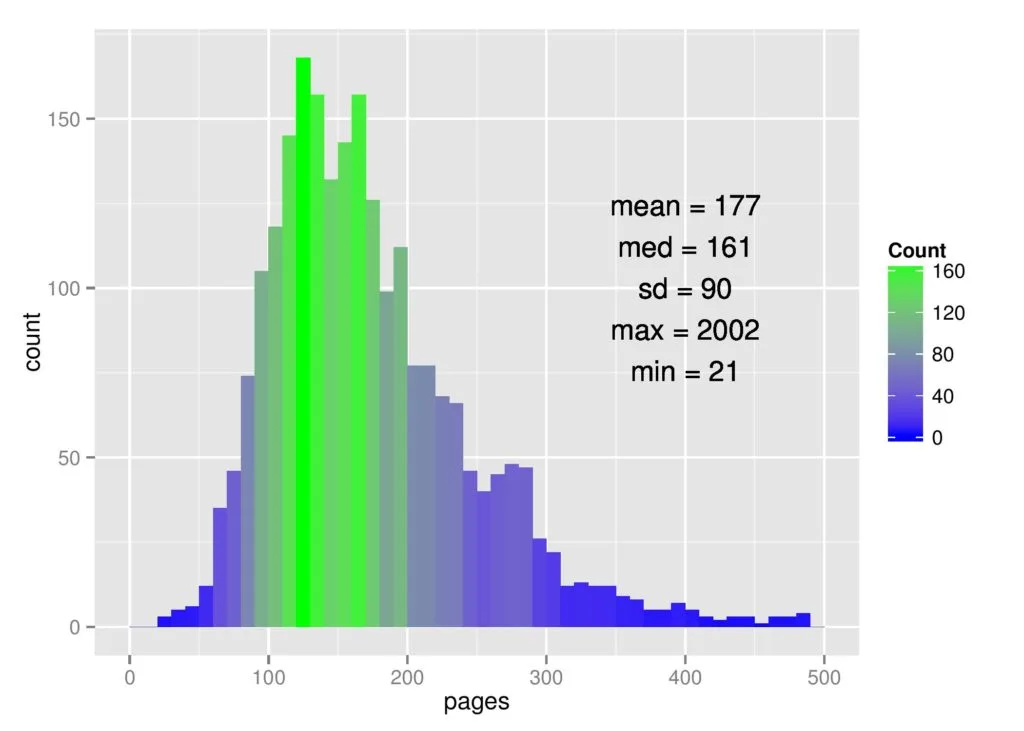Ever wondered how long a dissertation should be? Imagine it’s like the final level in a video game, the ultimate challenge in your school journey. This big project brings together everything you’ve learned and lets you showcase your knowledge on your favorite topic. But here’s the thing: there’s no one-size-fits-all answer to how long it should be. It varies for everyone, which can be confusing. So, let’s explore why the length of a dissertation isn’t the same for everyone.
Definition for Dissertation
A dissertation is a big project, kind of like a long essay, that students do at the end of their time in university. It’s a really important piece of work because it shows how much they’ve learned about one particular topic. When we talk about “dissertation how long, we’re asking just how big or how many pages this project needs to be.. It serves as a testament to their mastery of a particular subject area, showcasing not only their knowledge but also their ability to apply research methodologies and analytical skills to address complex questions or problems within that field.
Dissertation Length
Dissertation length the length of a dissertation can change for different reasons. It depends on things like the university’s rules, the topic, and how much the student has to say about it. Some dissertations might be short, while others are longer. On average dissertation length, tends to be around 10,000 to 15,000 words long. Now, that might sound like a lot, but it really depends on the subject and the university’s guidelines. Some dissertations can be shorter, while others might be longer, especially in fields like history or literature where more in-depth research is needed. So, when you’re wondering about the dissertation length.
Strategies for Managing Dissertation Length

-
Planning and Organization
- Start with a clear research question or thesis statement.
- Create a detailed outline to structure your dissertation.
- Break down research into manageable sections with allocated word counts.
-
Critical Evaluation of Content
- Continuously assess the relevance of each section to the research question.
- Remove redundant or unrelated information.
- Prioritize key findings and discussions.
-
Streamlining Literature Review
- Focus on important and recent studies related to the topic.
- Avoid lengthy summaries and focus on critical analysis.
-
Concise Methodology and Results
- Clearly describe research methods without unnecessary details.
- Present results concisely, highlighting key findings.
-
Effective Writing Techniques
- Use clear and concise language.
- Remove unnecessary words to improve readability.
- Use active voice and precise terminology.
-
Continuous Editing and Revision
- Regularly review and revise the dissertation.
- Edit for grammar, punctuation, and formatting.
-
Focus on Key Content
- Emphasize essential points and avoid unnecessary details.
- Ensure every section contributes to the main argument.
-
Meeting University Guidelines
- Adhere to formatting and word count requirements.
- Use headings and subheadings to organize content effectively.
Importance of Dissertation Length
- Clarity of Communication: The length of a dissertation allows for comprehensive coverage of the research topic. It ensures that all aspects of the study, including the research question, methodology, findings, and discussion, are adequately addressed and explained.
- Depth of Analysis: A longer dissertation provides the opportunity for a more in-depth analysis of the research findings, which is beneficial for students receiving Australian assignment help. It allows the researcher to explore various perspectives, theories, and methodologies relevant to the study, thereby enriching the scholarly discourse within the field.
- Demonstration of Mastery: The length of a dissertation reflects the student’s mastery of the subject matter and their ability to engage critically with existing literature. It demonstrates their capacity to conduct independent research, analyze complex data, and synthesize findings into a coherent and compelling argument.
- Contribution to Knowledge: A substantial dissertation length allows for the exploration of new ideas, theories, or methodologies within the research field. It enables students to make a meaningful contribution to the existing body of knowledge by presenting original research findings and insights.
- Publication Potential: In some cases, a longer dissertation may serve as the basis for future publications, such as journal articles or monographs. The depth and breadth of research presented in a dissertation can contribute to the student’s academic portfolio and enhance their prospects for further research or career advancement.
How long is a Dissertation for PHD

A Ph.D. dissertation is a significant undertaking that requires extensive time and dedication, often with the support of dissertation help. It’s essentially a massive research project conducted by Ph.D. students to demonstrate their expertise in their chosen field. Similar to a colossal research paper, this dissertation showcases their ability to contribute new knowledge to their discipline.
Now, you might be curious: “How long is a dissertation for a Ph.D.?” Well, there’s no fixed answer because it varies depending on factors like the subject area and university requirements. However, on average, Ph.D. dissertations tend to range from 80,000 to 100,000 words. That’s a substantial amount of writing!
But here’s the important thing to remember: the length isn’t the only measure of its significance. The quality of research, depth of analysis, and originality of ideas presented are equally crucial. A Ph.D. dissertation represents the culmination of years of study and research, making it a cornerstone of academic achievement.
Standard Page Length Estimates:- How many pages is a dissertation
The number of pages in a dissertation isn’t set in stone and can vary significantly due to several factors. These factors include the formatting requirements set by the academic institution, the font size and style used, the spacing between lines, and the amount of content included in the dissertation.
However, as a general estimate, most dissertations typically fall within the range of 150 to 300 pages. This range provides enough space for researchers to thoroughly explore their topic, present their findings, and discuss their conclusions in detail. When considering dissertation how many pages. it’s essential to recognize that the length can vary based on multiple factors.
It’s worth noting that some dissertations may exceed this range, while others may be shorter depending on the complexity and depth of the research. It’s crucial to understand that the quality and depth of the content are far more important than the actual page count. Instead of focusing solely on meeting a specific page requirement, researchers should prioritize effectively communicating their research, analysis, and conclusions.
Factors Influencing Dissertation Length
Several factors influence the length of a dissertation, including academic discipline, university guidelines, research topic, and the nature of the study. While there is no universal standard for dissertation length, understanding these factors can help aspiring scholars navigate this crucial aspect of their academic journey.
Academic Discipline:
Different academic disciplines have varying expectations regarding dissertation length. For instance, dissertations in fields such as history or literature may be longer due to the extensive analysis of primary sources and literature review. Conversely, dissertations in mathematics or computer science may be shorter, focusing more on theoretical frameworks and data analysis.
University Guidelines:
Most universities have specific guidelines regarding dissertation length, format, and structure. These guidelines may prescribe a minimum and maximum word count for each section, ensuring that dissertations meet academic standards while allowing students the flexibility to explore their research topics thoroughly.
Research Topic:
The complexity and breadth of the research topic also influence dissertation length. A narrowly focused topic may result in a shorter dissertation, whereas a broad, interdisciplinary study may require a more extensive exploration of literature and data analysis, leading to a longer document.
Nature of the Study:
The type of research conducted (e.g., qualitative, quantitative, mixed methods) and the amount of data collected can significantly impact dissertation length. Qualitative studies often involve in-depth interviews or case studies, which may result in longer dissertations due to the detailed analysis of qualitative data. On the other hand, quantitative studies may focus more on statistical analysis, resulting in a concise presentation of findings. Overall, understanding “dissertation how long” is crucial for navigating this aspect of academic research effectively.
Also Read: How to Write a Dissertation
Conclusion
In conclusion,the length of a dissertation is indeed a significant consideration for any student embarking on this academic endeavor. It serves as a testament to their mastery of a particular subject area, showcasing not only their knowledge but also their ability to apply research methodologies and analytical skills to address complex questions or problems within that field. While there is no universal standard for dissertation length, various factors such as academic discipline, university guidelines, research topic, and the nature of the study influence its length. Understanding “how long is a dissertation” is essential as it impacts the scope and depth of the research undertaken. Whether it’s determining how many pages is a dissertation or understanding the length required for a dissertation for a PhD, students must consider these factors carefully. Adhering to university guidelines, critically evaluating content, and effectively managing dissertation length through strategic planning and organization are vital aspects of producing high-quality academic work.


